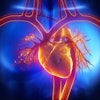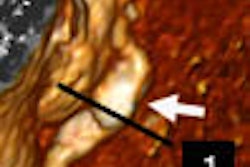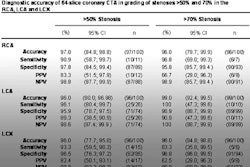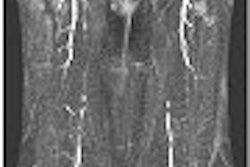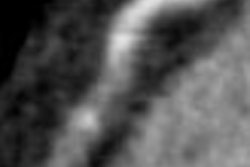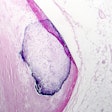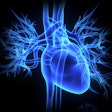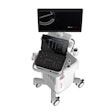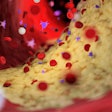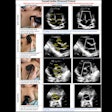Dear AuntMinnie Member,
Multidetector CT's ability to characterize plaque type could help clinicians better manage therapy for patients with acute coronary syndrome (ACS).
That's the conclusion of an article we're featuring this week in our Cardiac Imaging Digital Community by staff writer Eric Barnes. According to the story, Austrian researchers used 16-slice MDCT to assess different coronary plaque types in hopes of determining the relationship between plaque composition and ACS.
They found that acute coronary syndrome was found only in patients with mixed plaque -- both calcified and noncalcified. The finding indicates that these types of plaques are more vulnerable, and therefore patients who have them should be treated more aggressively, for example with statins. Get all the details by clicking here.
In another article we're featuring in the community, U.S. researchers using electron beam CT found that the modality can detect differences in heart disease progression in different ethnic groups. The study found that minority ethnic groups have higher baseline coronary artery calcium (CAC) scores and a greater mortality risk, and thus might benefit from more aggressive therapy.
Read all about the study by clicking here, or visit our Cardiac Imaging Digital Community, at cardiac.auntminnie.com.
